The Economic Crisis: Utopia and Optimism
“In the Chinese ideogram, the word 'crisis' means opportunity and I like to see the economic crisis that has taken over the world as an opportunity to make us to reflect on our situation and change lifestyle. I want to think of 2012 as the year of the “shift,” the year when we all come to the realization that that old, apparently banal, saying “money does not bring happiness,” is true and rich of wisdom.
Maybe with time we will learn to look back at 2012 as the year of the provocation that has forced us all to look within ourselves, pick ourselves up and leave behind the wrong idea of economy. That economy whose scope is not to accumulate money, favor some while damaging others but as a means to free humanity from slavery, from that fight for survival that brings entire populations to fight against each other thus generating tears and blood even within the same nation.”
Don Gennaro Matino, the person quoted above, is one of the many writers and thinkers who are trying to give an explanation to the crisis that is hurting us all and to bring hope for a solution. A voice among many but nevertheless absolutely different.
Don Gennaro Matino is a clergyman, a professor of pastoral theology who has been a missionary in the third world. He regularly contributes articles to Italian publications such as Avvenire and Famiglia Cristiana (religious magazines) and Il Mattino newspaper. He has published several essays and theological novels. He is the rector of the parish of SS, Trinità of Naples since 1986.
The Neapolitan priest was a guest of NYU's Casa Italiana Zerilli Marimò at the beginning of the month, for a presentation of his book “Economia della crisi. Il bene dell’uomo contro la dittatura dello spread” (Baldini & Castoldi). With him writer and professor Antonio Monda, who conducted the on-stage interview, after the introdution of Casa Italiana's director Stefano Albertini.
“I hope this book can move people,” Don Matino told Letizia Airos during an interview done before the presentation, “I hope it can lead to reflection and bring about that ethical detour that is able to transform utopia into reality.” The book is available only in Italian at the moment, but a translation is in the works as the author wishes to overcome all barriers and let the international world read his words. “After the presentation in New York, preceded by one in my hometown, I will go to New Delhi. The choice was deliberate, as I picked cities with the word “new” in their names. That “new” represents a rebirth. I look at the future with trust and optimism I see men and women of different worlds, starting with Naples, New York and New Delhi come together, freed by any superstructure. Only then, they will be ready to invest in age-old values that are everlasting and always new but mostly able to bring mankind back to itself.”
The concept, was, of course, analyzed further at the presentation at Casa Italiana where Don Matino explained that there is no room for pessimism (a rather difficult enterprise when people, young and old, can't find a job, pay for medical insurance or send their children to school) but there is plenty of room for the wrongful idea that once the financial crisis is resolved everything is going to be fine. According to Don Matino the issues do not lie in the system but in the individualist mentality of people who think only of benefit themselves while damaging others. This mentality is not just ethically wrong but economically too considering the crisis we all are experiencing right now.
“The roots of the economic crisis,” Don Matino explained “can be found in an ethical void, in the silence of the human conscience that has allowed material profit to step on and smash any value. We should strive to bring back an ethical sense to life, to all its aspects, including to economy. Everything can and must have a social dimension.”
On this issue, Professor Antonio Monda, who authored, among many, the book Tu Credi?, a collection of conversations on God and religion, quoted Robert Kennedy during his address at the University of Kansas, Lawrence, Kansas, March 18, 1968.
“Too much and too long, we seem to have surrendered community excellence and community values in the mere accumulation of material things. Our gross national product ... if we should judge America by that - counts air pollution and cigarette advertising, and ambulances to clear our highways of carnage. It counts special locks for our doors and the jails for those who break them. It counts the destruction of our redwoods and the loss of our natural wonder in chaotic sprawl. It counts napalm and the cost of a nuclear warhead, and armored cars for police who fight riots in our streets. It counts Whitman's rifle and Speck's knife, and the television programs which glorify violence in order to sell toys to our children. Yet the gross national product does not allow for the health of our children, the quality of their education, or the joy of their play. It does not include the beauty of our poetry or the strength of our marriages; the intelligence of our public debate or the integrity of our public officials. It measures neither our wit nor our courage; neither our wisdom nor our learning; neither our compassion nor our devotion to our country; it measures everything, in short, except that which makes life worthwhile. And it tells us everything about America except why we are proud that we are Americans.”
Don Matino's ideas are incredibly similar. “A country's GNP does not bring security or happiness. It can be high but that does not mean that people live well. They can lack values and have no hope for the future.”
This goes beyond religion. People, no matter what their creed is, have the innate need to give a sense to their future. “Suffering, fear, the crisis of being tell countless stories about the hardship of living, but this difficulty itself brings hope for the future. Utopia is born when hope is lost, when the future is bleak. The more pressing failure becomes the stronger the longing for a better day is. Utopia succeeds in guiding society through the defeat of an unsatisfactory present reality towards a positive outcome. This must not just be an idea though, but a call to action, so that the existing order can be positively changed.”






























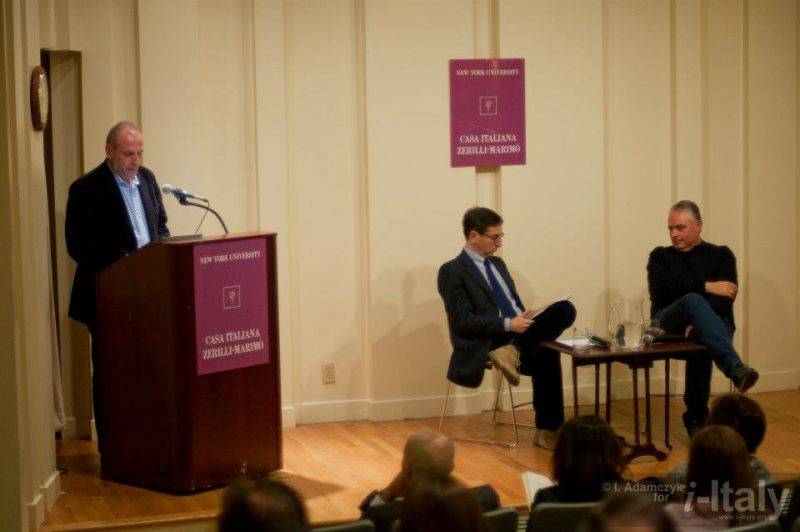
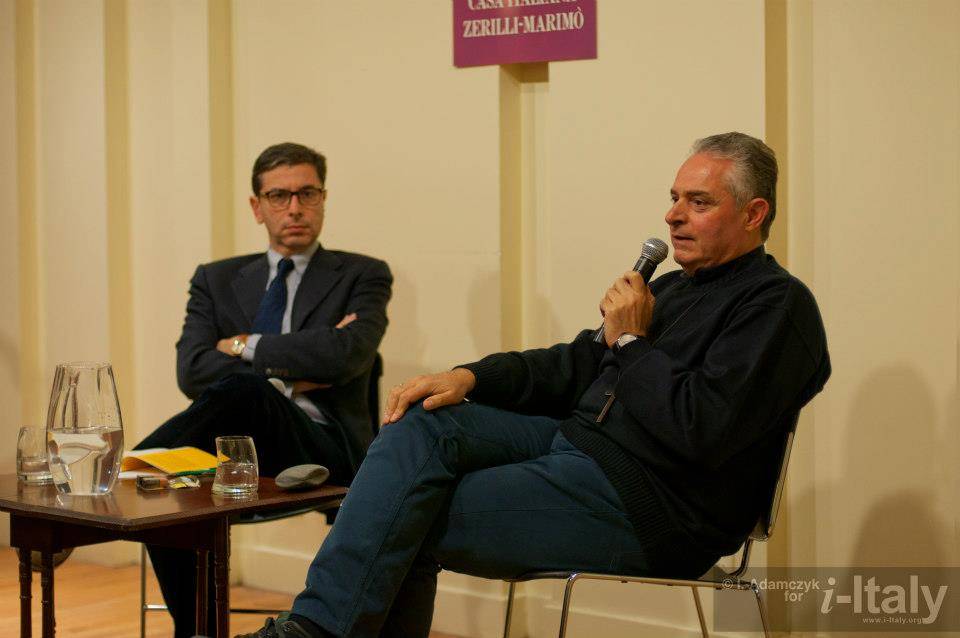

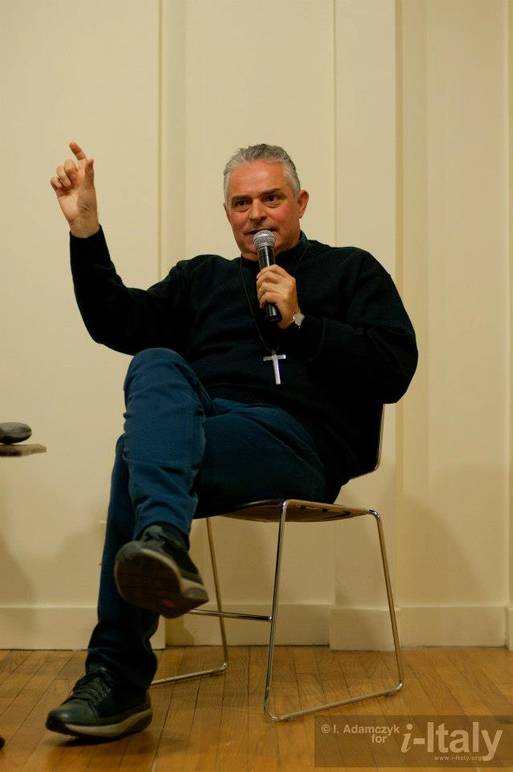
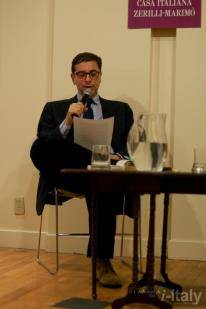
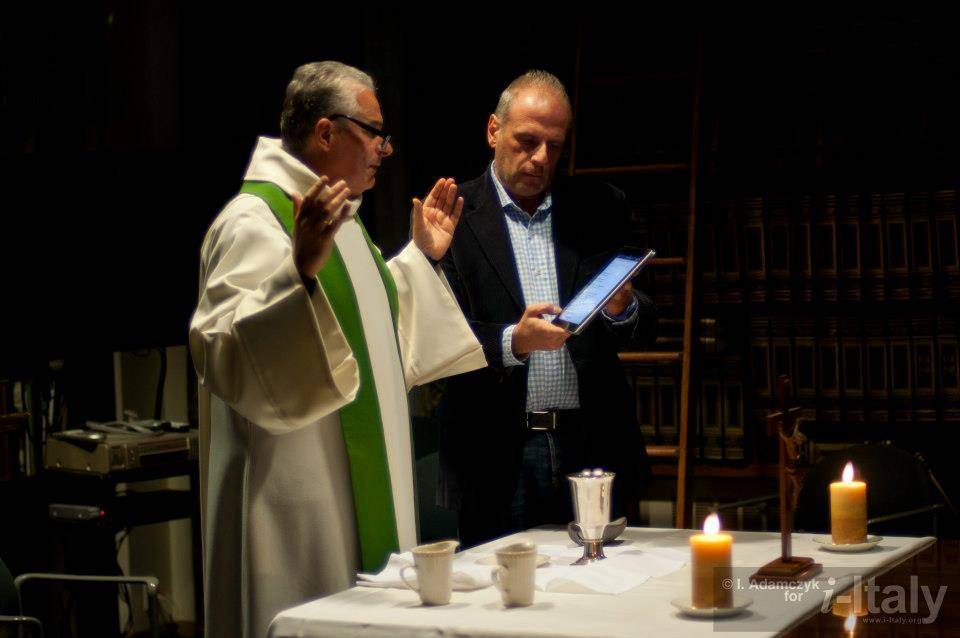







i-Italy
Facebook
Google+
This work may not be reproduced, in whole or in part, without prior written permission.
Questo lavoro non può essere riprodotto, in tutto o in parte, senza permesso scritto.